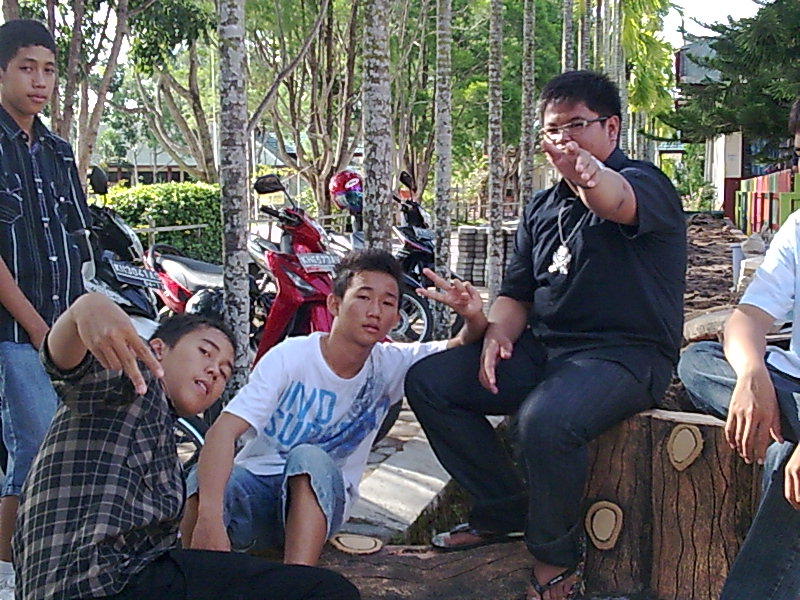Present Perfect tense
The present perfect is a grammatical combination of the present tense and the perfect aspect, used to express a past event that has present consequences. An example is "I have eaten" (so I'm not hungry). Depending on the specific language, the events described by present perfects are not necessarily completed, as in "I have been eating" or "I have lived here for five years."
The present perfect is a compound tense in English, as in many other languages, meaning that it is formed by combining an auxiliary verb with the main verb. For example, in modern English, it is formed by combining a present-tense form of the auxiliary verb "to have" with the past participle of the main verb. In the above example, "have" is the auxiliary verb, whereas the past participle "eaten" is the main verb. The two verbs are sometimes labeled "V1" and "V2" in grammar instruction.
In modern English, the auxiliary verb for forming the present perfect is always to have.
- I have eaten
- You have gone
- He has arrived
In many other European languages, the equivalent of to have (e.g., German haben, French avoir) is used to form the present perfect (or their equivalent of the present perfect) for most or all verbs. However, the equivalent of to be (e.g., German sein, French être) serves as the auxiliary for other verbs in some languages such as German, Dutch, French, and Italian (but not Spanish or Portuguese). Generally, the verbs that take to be as auxiliary are intransitive verbs denoting motion or change of state (e.g., to arrive, to go, to fall).
Examples(1a) The boy saw the car. (Emphasis is on the fact that the boy saw the car.)
(1b) The boy has seen the car. (Emphasis is on the present state of the boy, resulting from the fact that he saw the car.)
(2a) I left Brazil eight years ago. (It happened in the past.)
(2b) I have left Brazil for now. (It happened in the past but is still relevant.)
(3a) What did John do last night? ... Last night, John watched some TV and prepared for the test. (His preparation was in the past.)
(3b) How does John feel about the test? ... John is nervous about his test, but he has prepared, so I think he'll do fine. (His preparation is in the past, and his current state of preparedness results from that.)
Sometimes the current relevance of the past event even involves the continuing occurrence of the event; this feature may occur with of without the use of the progressive aspectual form:
(4a) I have studied all night. (The implication is that I may still not be done.)
(4b) I have been studying all night. (The implication again is that I'm still not done, but there is a subtly increased focus on the fact that the studying is an ongoing process.)
With an innately stative verb, the present perfect may or may not indicate that the state continues in the present, but in either case a state of present relevance is indicated:
(5a) I lived in Holland last year. (This occurred in the past; no relevance is implied for the present.)
(5b) I have lived in Holland. (Without further information, it is implied that I no longer live there; but the use of the present perfect means that my past living there is still relevant.)
(5c) I have lived in Holland for five years now. (It is implied that I still live there.)

